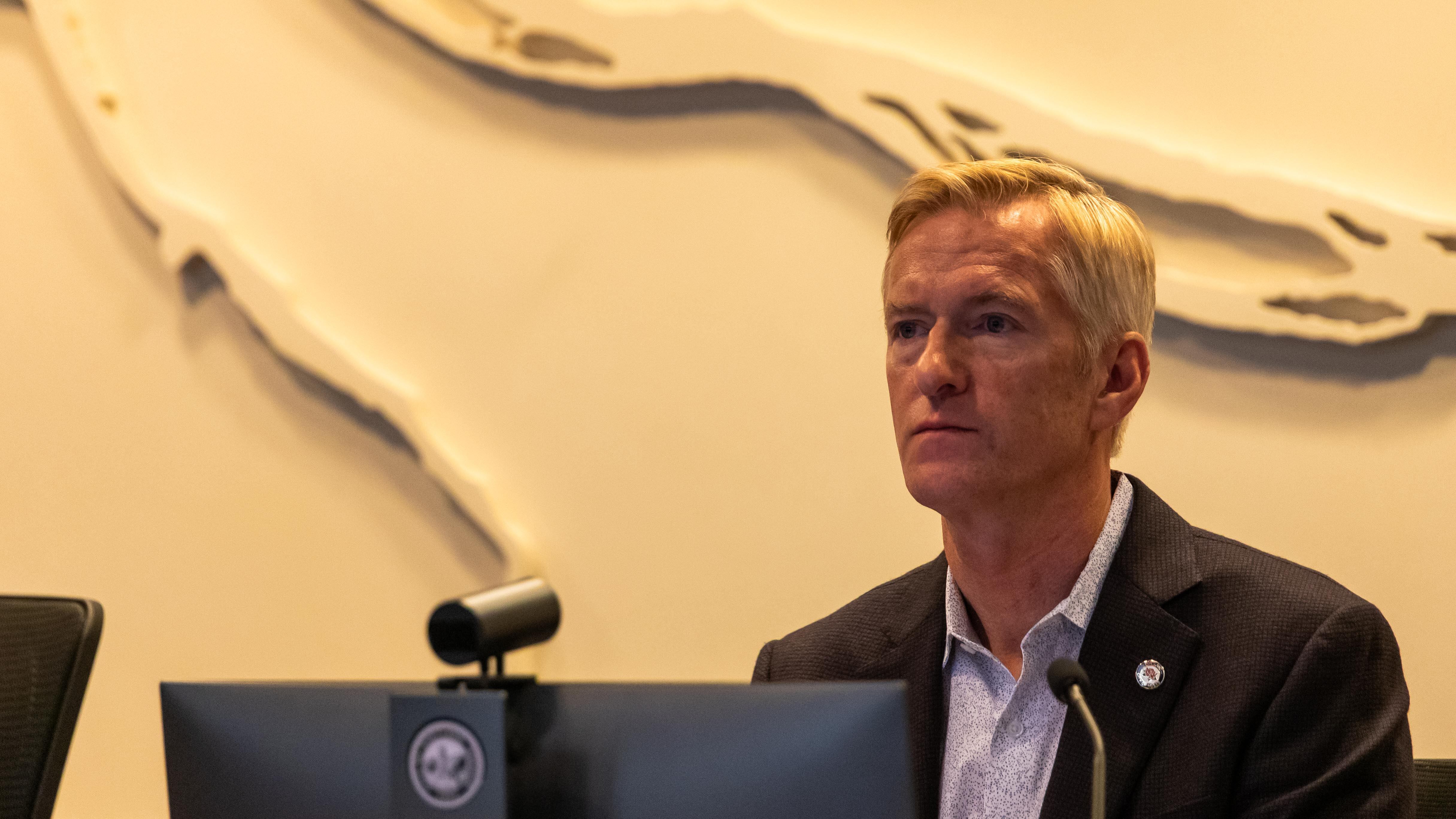Mayor Ted Wheeler issued a warning last week about the direness of the city’s next fiscal year, 11 months before that fiscal year even begins.
“Unfortunately, the next fiscal year is expected to be at least as difficult as the last,” Wheeler wrote in an Aug. 5 memo to city administrator Michael Jordan, deputy city administrator Jonas Biery and budget director Ruth Levine. “The City’s revenues are projected to be potentially lower than prior forecasts, and we are facing significant pressure on our ongoing costs.”
Budget guidance in August—for the fiscal year beginning July 1, 2025—is highly unusual, and signals a deep concern among top city leaders about the city’s finances. Wheeler wrote that higher health care costs for employees, capital projects and legal fee obligations would lead to a budget with no fat to trim next year.
“Each service area has funds with gaps between their projected costs and revenues, from the General Fund to the Transportation Fund, Parks Levy, and Portland Permitting & Development Fund,” Wheeler wrote. “Bureaus should expect no new General Fund resources for current year one-time needs.”
Wheeler’s early warning of next year’s finances follows a recent decision by the Portland City Council to shore up major budget shortfalls using, in part, excess revenues from the Portland Clean Energy Fund, a tax on business sales that’s brought in hundreds of millions more than originally projected.
Budget guidance, just one month after the city approved the budget that covers the fiscal year that began July 1, is unusual, signaling a deep concern among city leaders about the financial forecast.
Wheeler signaled that the city would have to get creative about filling budget holes, like using any unused American Rescue Plan Act dollars the city received from the feds during the COVID-19 lockdown. (The city is expected to release a report about its use of ARPA dollars—including whether any went unused—this fall.)
The City Council used excess PCEF revenue to fill budget holes in the 2024-25 budget that the council passed in May. For months prior to the passage of the annual budget, city bureaus, including the Transportation, Water and parks bureaus reported budget shortfalls totaling about $70 million.
In a separate email, interim city administrator Michael Jordan wrote to all city employees about the tough financial year ahead.
“I want to acknowledge the anxiety and uncertainty that can accompany a tough financial outlook,” Jordan wrote. “It is not possible to predict exactly how we’ll balance next year’s budget and stabilize the city’s long-term finances.”
